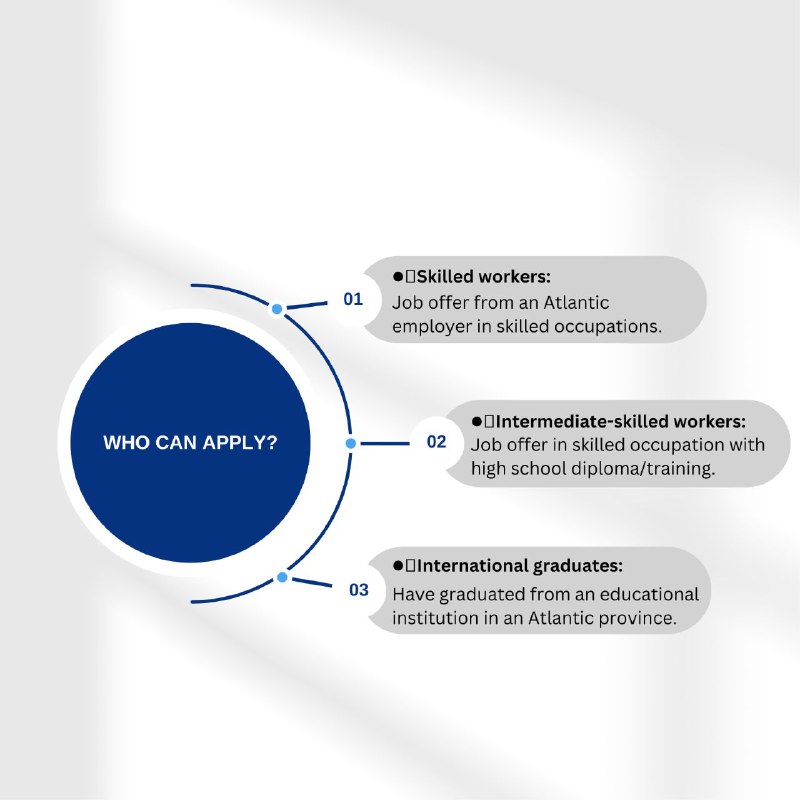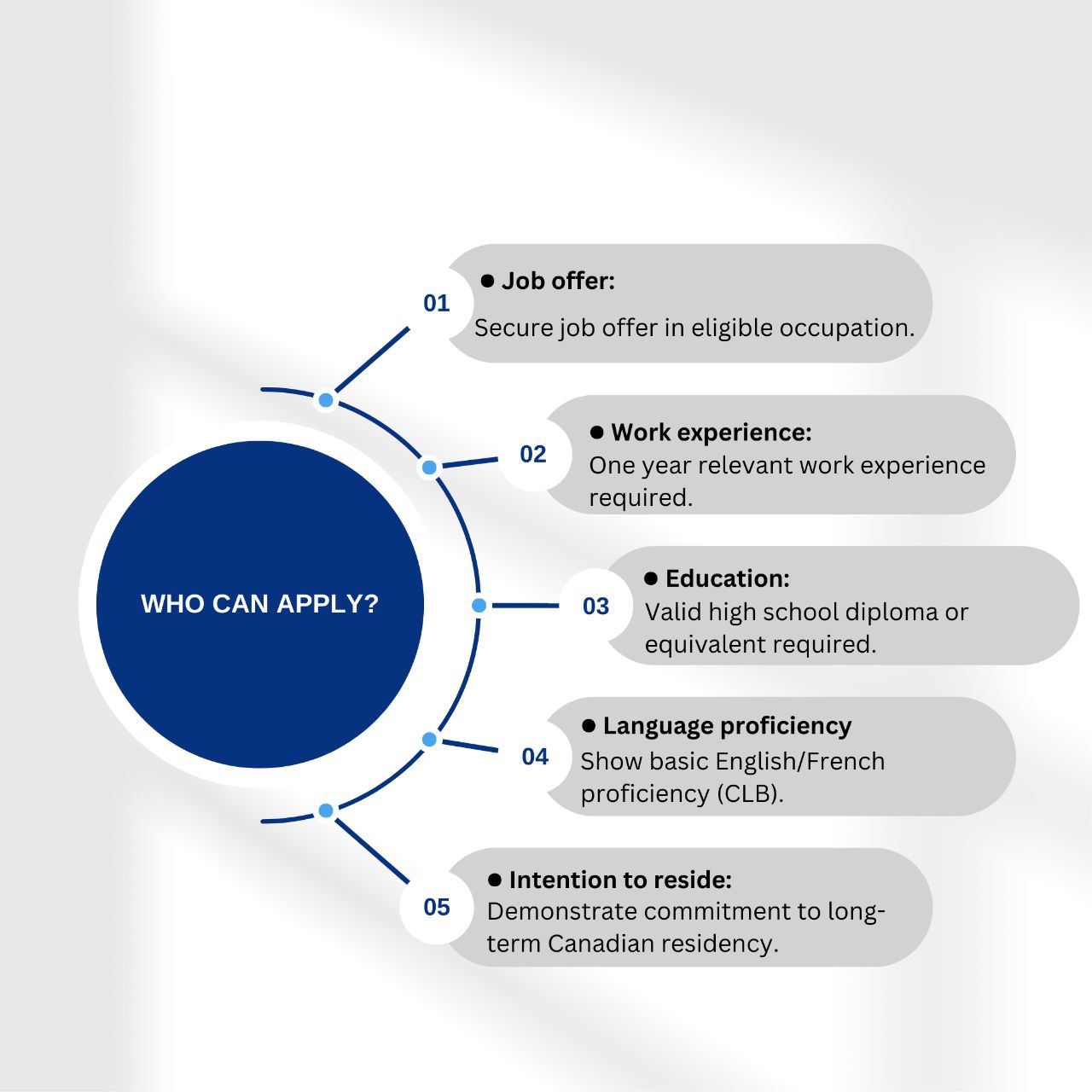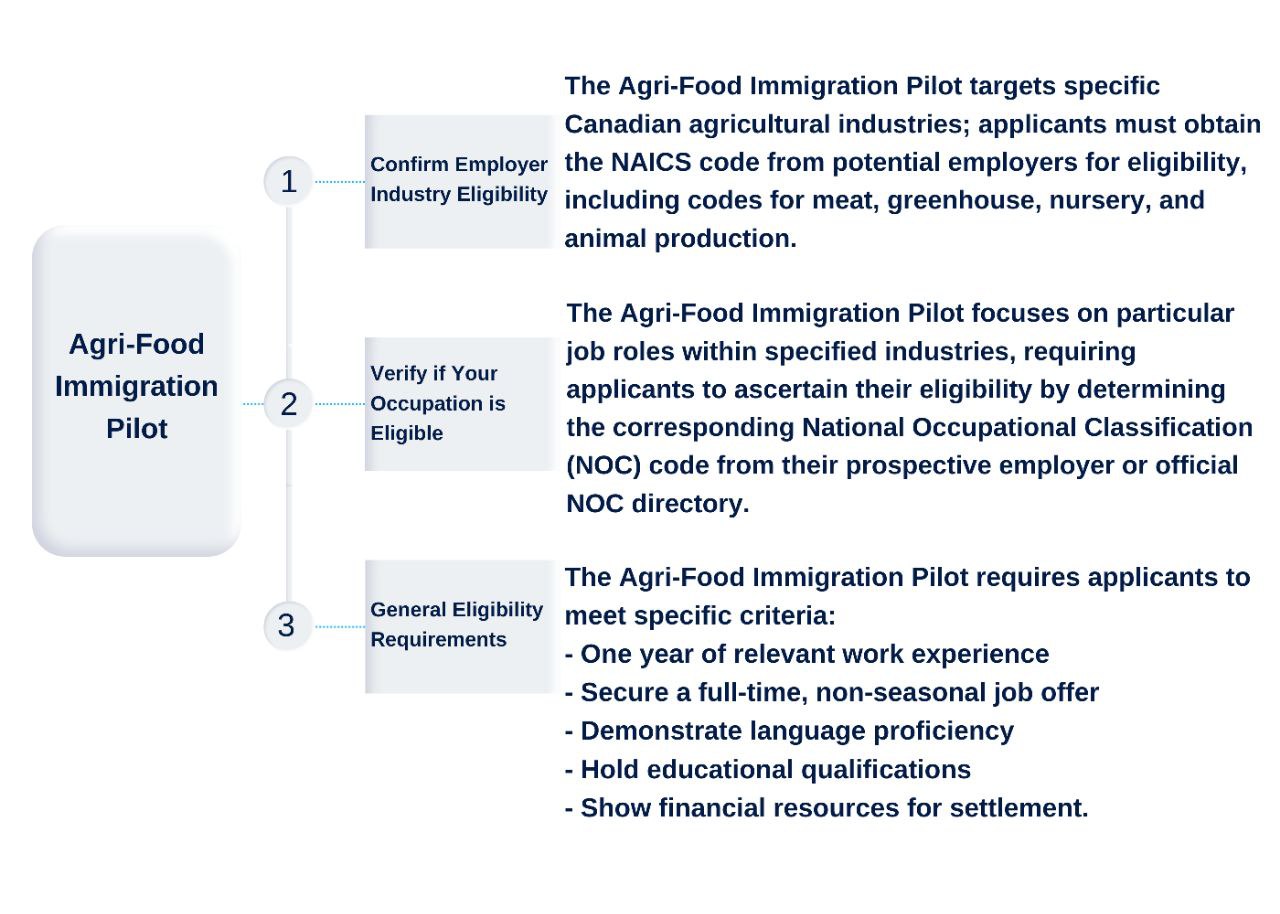This comprehensive guide focuses on five prominent pilot programs: the Atlantic, Rural and Northern, Agri-Food, and Home Support Worker initiatives. You’ll find details on each program’s purpose, eligibility requirements, and application process. Whether you’re an experienced professional, a budding entrepreneur, or someone seeking career advancement, this guide can help you determine if and how a pilot program can pave your path to Canadian residency.
Canada operates several pilot programs to address specific labor market needs. These temporary initiatives aim to attract skilled workers, entrepreneurs, and professionals who can contribute toCanada’s economic development. Participation in these programs can offer individuals and their families a pathway to permanent residency.
Compared to traditional immigration programs, pilots possess greater flexibility and adaptability. Their design allows for experimentation with new approaches and concepts to enhance the immigration system. Successful pilots may be extended or even transitioned into permanent
programs.
Finding the
Right Canada Pilot Program: A Guide for Prospective Applicants
Choosing the optimal Canada pilot program requires careful consideration of your skills, professional experience, and personal preferences. Each program features distinct eligibility criteria and aims to attract specific professionals or individuals seeking to settle in particular regions. To assist your decision-making, the following sections provide detailed information on each pilot program.
Atlantic
Immigration Pilot Program (AIPP): A Pathway to Atlantic Canada
The Atlantic Immigration Pilot Program (AIPP) offers a targeted pathway for skilled foreign workers and international graduates. Launched in 2017, AIPP addresses labor needs in New Brunswick, Newfoundland and Labrador, Nova Scotia, and Prince Edward Island.

Who can apply?
● Skilled workers: Have ajob offer from an Atlantic employer in skilled occupations.
● Intermediate-skilled workers: Have a job offer in an occupation requiring a high school diploma or job-specific training.
● International graduates: Have graduated from an educational institution in an Atlantic province.
All applicants must:
● Meet the education and work experience requirements for their chosen program.
● Demonstrate proficiency in English or French.
● Show their intention to reside in an Atlantic province.
Feesf
| AIPP Cost | Fee/Price |
|---|---|
| Your application | $1,325.00 |
| Your application (without right of permanent residence fee) | $825.00 |
| Include your spouse or partner | $1,325.00 |
| Include your spouse or partner (without right of permanent residence fee) | $825.00 |
| Include a dependent child | $225.00 (per child) |
| Biometrics – per person | $85.00 |
| Biometrics – per family (2 or more people) | $170.00 |
| NOC Code | Occupation | Annual Application Limit |
|---|---|---|
| NOC 63201 | Retail Butchers | 1,470 |
| NOC 94141 | Industrial Butchers and Meat Cutters, Poultry Preparers and Related Workers | 1,470 |
| NOC 82030 | Agricultural Service Contractors and Farm Supervisors | 50 |
| NOC 95106 | Labourers in Food and Beverage Processing | 730 |
| NOC 82030 | Agricultural Service Contractors and Farm Supervisors | 50 |
| NOC 85101 | Harvesting Labourers | 600 |
| NOC 82030 | Agricultural Service Contractors and Farm Supervisors | 50 |
Benefits of AIPP:
- Faster processing times: Applications are prioritized compared to other immigration programs.
- Greater flexibility: Three sub-programs cater to different skill levels and career stages.
- Pathway to permanent residency: Successful applicants can transition to permanent residency after meeting program requirements.
Learn more:
- Explore the specific requirements and application process for each AIPP sub-program:
- Atlantic High-Skilled Program (AHSP): A program for skilled foreign workers with at least one year of work experience in a managerial, professional, or technical occupation who have a job offer from a designated employer in Atlantic Canada12.
- Atlantic Intermediate-Skilled Program (AISP): A program for foreign workers with at least one year of work experience in an intermediate level occupation that requires a high school diploma or a job-specific training who have a job offer from a designated employer in Atlantic Canada13.
- Atlantic International Graduate Program (AIGP): A program for international graduates from a publicly funded educational institution in Atlantic Canada who have a job offer from a designated employer in Atlantic Canada14.
- Discover how to apply to AIPP here.
Rural and Northern Immigration Pilot (RNIP)
The Rural and Northern Immigration Pilot (RNIP) offers a unique pathway to permanent residency for skilled foreign workers who wish to live and work in designated Canadian communities outside major urban centers. Launched in 2019, this community-driven program aims to address local labor shortages and stimulate economic development in smaller towns and rural areas.
Who can apply?
To be eligible for the RNIP, you must meet the following criteria:
- Job Offer: Secure a qualifying job offer in one of the participating communities. These communities vary across Canada, so explore the official list to find opportunities aligned with your skills and interests.
- Language Proficiency: Demonstrate proficiency in English or French based on the Canadian Language Benchmarks (CLB) requirements for your specific occupation.
- Work Experience: Possess at least one year of full-time work experience, or equivalent part-time experience, in the past three years, related to your intended job in the community.
- Education: Hold a valid high school diploma or equivalent (Canadian or foreign) recognized by an Educational Credential Assessment (ECA).
- Intention to Reside: Show genuine commitment to living and working in the chosen community long-term.
Benefits of RNIP:
- Fast-tracked Processing: Compared to other immigration programs, RNIP applications are reviewed faster, offering quicker outcomes.
- Community Focus: Gain access to supportive resources and guidance from the chosen community to facilitate integration and settlement.
- Pathway to Permanent Residency: Upon fulfilling program requirements and successfully adapting to your new community, you can transition to permanent resident status, opening doors to long-term opportunities in Canada.
Discover Your Rural Canadian Destination:
Learn more about participating communities, explore available job opportunities, and access detailed application information through the official RNIP website: https://www.canada.ca/en/immigration-refugees-citizenship/services/immigrate-canada/rural-northern-immigration-pilot.html
Agri-Food Immigration Pilot: Grow Your Future in Canada
Seeking a career change and a secure future? The Agri-Food Immigration Pilot offers skilled farm and livestock workers a pathway to permanent residency in Canada, opening doors to stable employment and rewarding opportunities in the nation’s thriving agricultural sector.
Over 2,750 job openings are currently available across Canada, spanning diverse roles in:
- Meat processing
- Animal raising (cattle, hogs, poultry, sheep, goats)
- Greenhouse and nursery production
- Mushroom production
No seasonal work here: This program targets individuals seeking permanent residency and long-term careers in Canada’s vibrant agricultural community.

Who can apply?
- Job offer: Secure a valid job offer from a participating employer in one of the eligible occupations.
- Work experience: Possess at least one year of continuous full-time work experience in the past three years, directly related to your intended job in Canada.
- Education: Hold a valid high school diploma or equivalent (Canadian or foreign) recognized by an Educational Credential Assessment (ECA).
- Language proficiency: Demonstrate basic proficiency in English or French based on Canadian Language Benchmarks (CLB) requirements.
- Intention to reside: Show genuine commitment to living and working in Canada long-term.
Benefits of the Agri-Food Pilot:
- Fast-tracked processing: Applications are prioritized compared to other immigration programs, offering quicker results.
- Pathway to permanent residency: Successfully fulfilling program requirements allows you to transition to permanent resident status, opening doors to long-term opportunities in Canada.
- Industry-specific support: Access dedicated resources and guidance from agricultural organizations to facilitate your integration and career growth in Canada.
Agri-Food Immigration Pilot
The Agri-Food Immigration Pilot offers skilled farm and livestock workers a pathway to permanent residency in Canada, opening doors to stable employment and rewarding opportunities in the nation’s thriving agricultural sector.
Over 2,750 job openings are currently available across Canada, spanning diverse roles in:
- Meat processing
- Animal raising (cattle, hogs, poultry, sheep, goats)
- Greenhouse and nursery production
- Mushroom production
No seasonal work here: This program targets individuals seeking permanent residency and long-term careers in Canada’s vibrant agricultural community.

Step 1: Confirm Employer Industry Eligibility
The Agri-Food Immigration Pilot is designed for specific industries within the Canadian agricultural sector. To determine your eligibility, you need to identify the NAICS (North American Industry System) code associated with your potential employer’s industry. This code can be obtained directly from your prospective employer.
Eligible NAICS Codes:
- Meat Product Manufacturing: NAICS 3116
- Greenhouse, Nursery, and Floriculture Production, including Mushroom Production: MACS 1114
- Animal Production, excluding Aquaculture: NAICS 1121, 1122, 1123, 1124, or 1129
Step 2: Verify if Your Occupation is Eligible
The Agri-Food Immigration Pilot targets specific occupations within designated industries. To confirm your eligibility, you need to identify the NOC (National Occupational Classification) code associated with your job title. This information can be obtained from your prospective employer or by searching the official NOC directory.
Eligible Occupations and Annual Application Limits:
Step 3: General Eligibility Requirements
The Agri-Food Immigration Pilot has specific eligibility criteria that all applicants must meet:
● Work Experience: Possess at least one year of continuous, non-seasonal work experience (or 1,560 hours) in the past three years, directly related to the industry you are applying for in Canada.
● Job Offer: Secure a valid full-time, non-seasonal permanent job offer in Canada from a participating employer. The salary offered must meet or exceed the prevailing wage for the specific occupation in the province of employment.
● Language Proficiency: Demonstrate basic proficiency in English or French by achieving a minimum Canadian Language Benchmarks (CLB) or Niveaux de compétence linguistique canadiens (NCLC) score of 4.
● Education: Hold a valid Canadian high school diploma or its recognized foreign equivalent, as confirmed by an Educational Credential Assessment (ECA).
● Financial Resources: Prove sufficient financial resources to support yourself and any accompanying family members during your initial settlement in Canada, even if they are not immigrating with you.
Home Support
Worker Pilot Program:
This program offers dedicated foreign caregivers a pathway to permanent residency while addressing Canada’s growing need for in-home support for seniors, individuals with disabilities, and children.
Eligibility:
● Job Offer: Secure a valid job offer as a home support worker from a licensed employer in Canada.
● Language Proficiency: Demonstrate basic proficiency in English or French by meeting the Canadian Language Benchmarks (CLB) level 5 requirement.
● Work Experience: Possess at least one year of full-time work experience within the past three years as a home support worker. Your duties must have directly involved providing in-home care to seniors, persons with disabilities, or children.
● Education: Hold a valid post-secondary education credential of at least one year in Canada or its recognized foreign equivalent, as confirmed by an Educational Credential Assessment (ECA). Your credential should be related to the home support worker field, such as personal support worker training, gerontology, or early childhood education.
Home Child
Caregiver Pilot Program:
This program welcomes experienced caregivers seeking permanent residency while meeting Canada’s demand for qualified in-home child care.
Eligibility:
● Job Offer: Secure a
valid job offer as a child caregiver from a licensed employer in Canada.
● Language Proficiency:
Demonstrate basic proficiency in English or French by meeting the Canadian Language Benchmarks (CLB) level 5 requirement.
● Work Experience: Possess at least two years of full-time work experience within the past five years as a child caregiver. Your experience should involve directly caring for children in their own homes, including activities such as feeding, bathing,
playtime supervision, and educational development.
● Education: Hold a valid post-secondary education credential of at least one year in Canada or its recognized foreign equivalent, as confirmed by an ECA. Your credential should be related to child development, early childhood education, or similar fields.
Benefits of Both Pilot Programs:
● Pathway to Permanent Residency: Successfully fulfilling program requirements allows you to transition to permanent resident status in Canada, opening doors to long-term opportunities.
● Fast-tracked Processing: Applications are prioritized compared to other immigration programs, offering quicker results.
● Industry-specific Support: Access dedicated resources and guidance from government and community organizations to facilitate your integration and career growth in Canada.
While not mandatory, seeking guidance from an experienced immigration lawyer can be helpful throughout the application process, especially if your situation is complex or you have any doubts.
Whether or not a criminal record will bar you from immigrating to Quebec depends on the severity of the crime and the sentence you received. You should consult with an immigration lawyer to discuss your specific situation.
While French language proficiency is mandatory for the QSWP, there are other immigration programs for Quebec that may not require French, or have lower language requirements. Exploring these options and considering French language training are beneficial in the long term for successful integration in Quebec.
You can find more information on the websites of the Ministère de l’Immigration, de la Francisation et de l’Intégration (MIFI) and Immigration, Refugees and Citizenship Canada (IRCC).
- What are the benefits of immigrating to Quebec as a skilled worker?
Quebec offers many benefits for skilled workers, including:
- Strong job market in various sectors.
- High quality of life with affordable healthcare and education.
- Beautiful natural environment and vibrant culture.
- Pathway to Canadian citizenship.









